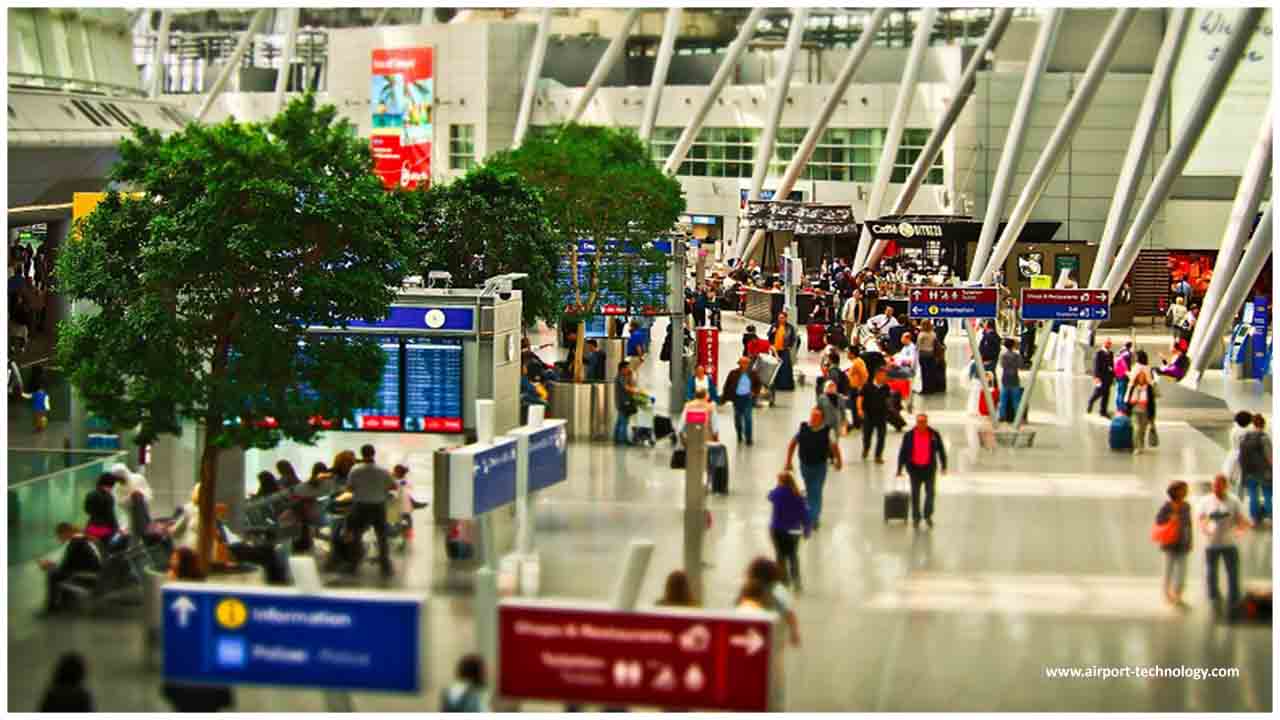Air travel will most likely be an all the more socially removed, do-it-without anyone's help understanding, depending on explorers to wear covers, submit to temperature outputs and handle their own packs, as per a "guide" delineated Tuesday by worldwide flying specialists.
Air terminals, aircraft and wellbeing authorities will have a job in creating frameworks to track and contact travelers in the occasion a voyager is determined to have covid-19, the infection brought about by the novel coronavirus; in ensuring that individuals keep up legitimate physical separation as they travel through air terminals; and in guaranteeing that the spaces through which they travel are completely cleaned and disinfected.
The objective of the arrangement delineated by the International Air Transport Association is to guarantee an unsteady open that once travel limitations and remain at home requests are lifted, it will be protected to continue flying.
The steady reviving of air venture out expects changes to an industry that for quite a long time has flourished with volume. More travelers implied more income for air terminals and aircraft. The size of the normal plane seat shrank as planes were reconfigured to oblige more travelers.
Be that as it may, authorities, presently working in reality as we know it where social removing has become the standard and where hand sanitizer, gloves, and covers are not, at this point thought about additional items however fundamentals, recognize that the coronavirus pandemic will change the old methods of working together.
"Meeting this test will mean creation critical changes over the air travel understanding, be it preflight, at the takeoff air terminal, onboard and post-flight," said Nick Careen, senior VP for air terminal, travelers, payload and security at IATA. "It will expect governments to accept expansive new obligations."
IATA, which speaks to about 300 bearers in 120 nations, has been working together with flight associations around the globe for almost two months to build up an arrangement its expectations will be grasped worldwide by governments, carriers and air terminals. The expectation is to finish subtleties before the current month's over.
"Indeed, even as the pandemic proceeds, the establishments for an industry restart are being laid through a close joint effort of the air transport industry with the [International Civil Aviation Organization, the [World Health Organization], singular governments and different gatherings," Alexandre de Juniac, chief general and CEO of IATA, said Tuesday during preparation with correspondents. "Much work, notwithstanding, stays to be finished."
By making uniform rules, authorities would like to dodge the piecemeal methodology that hounded endeavors to patch up security in the months and years after the Sept. 11, 2001, psychological militant assaults.
"The restart will go considerably more easily if governments collaborate," de Juniac said. "As I have said previously, we should maintain a strategic distance from the chaos that followed 9/11 when governments acted singularly. This made disarray for carriers and explorers the same. What's more, it took numerous years to tidy up."
When there is no antibody and huge holes stay in testing for the novel-coronavirus, Careen stated, IATA is suggesting a layered methodology that depends on innovation to lessen the measure of time individuals spend at the air terminal, temperature examines and nitty-gritty wellbeing polls to recognize wiped out explorers, alongside social separating.
Voyagers should finish as much as the registration procedure as they can before they show up at the air terminal - that incorporates printing tickets and pack labels. Carriers should exploit self-administration booths however much as could reasonably be expected to constrain individual-to-individual contact.
IATA is likewise proposing temperature examines be done when voyagers show up at the air terminal and possibly, again when they land at their goal if neighborhood wellbeing authorities esteem is essential. Travelers and group individuals ought to likewise be approached to wear covers both in the air terminal and keeping in mind that on the plane. What's more, air terminal access ought to be restricted to laborers, explorers, and those basic to a voyager's excursion.
Tilt said another key to IATA's arrangement is the requirement for governments to gather progressively point by point traveler data to permit better following of people in case of a flare-up.
"This is significant," he said. "Where conceivable this information ought to be gathered in an electronic structure and ahead of time of travelers showing up at the air terminal."
IATA additionally said that transporters ought to think about constraining portable things as another approach to speed boarding and diminish contact on board the airplane.
Lurch underlined that a large number of the proposed measures would be impermanent and would be reexamined as specialists grow new procedures for battling the infection.
IATA authorities offered no assessments for the amount it would cost to execute such measures, yet a few air terminals and aircraft have just started receiving such practices.
Outskirts Airlines, for instance, as of late turned into the first U.S. carrier to declare it would do temperature outputs and gather wellbeing data from travelers. What's more, air terminals including San Francisco and Los Angeles International air terminals as of late reported that individuals from people, in general, would need to wear face covers when at the air terminal.

 Coronavirus Pandemic: By creating uniform guidelines, officials hope to avoid the piecemeal approach that dogged efforts to revamp security
Coronavirus Pandemic: By creating uniform guidelines, officials hope to avoid the piecemeal approach that dogged efforts to revamp security









.jpeg)



.jpeg)

.jpg)





.png)





.jpg)
